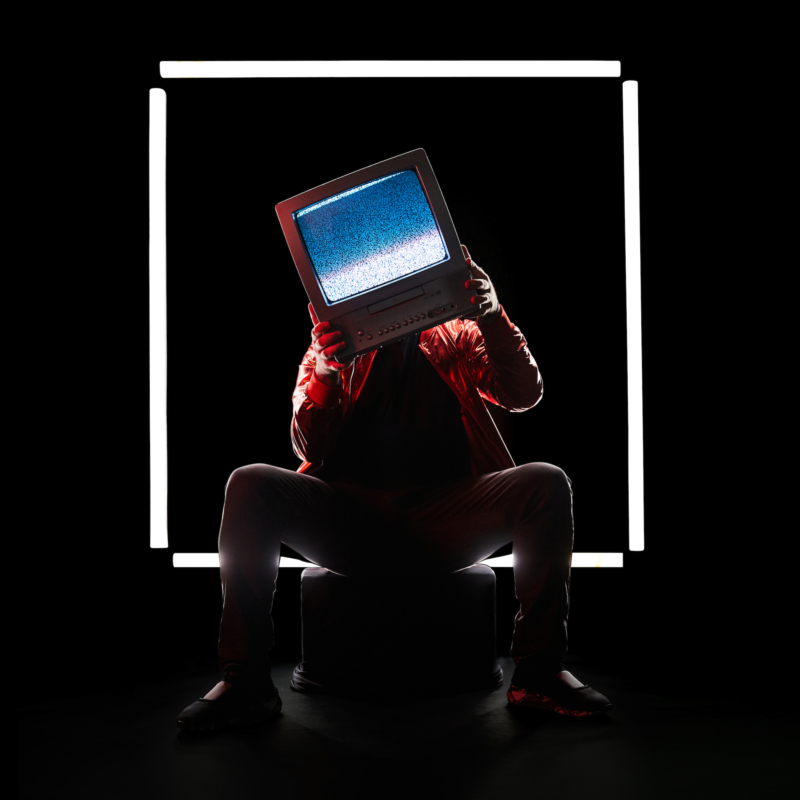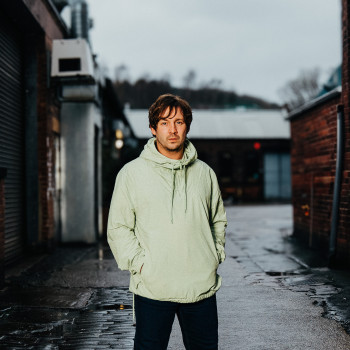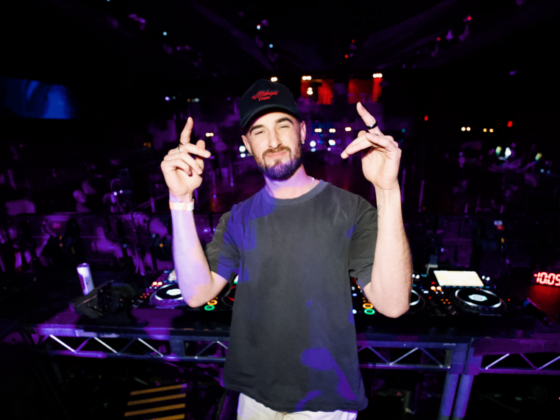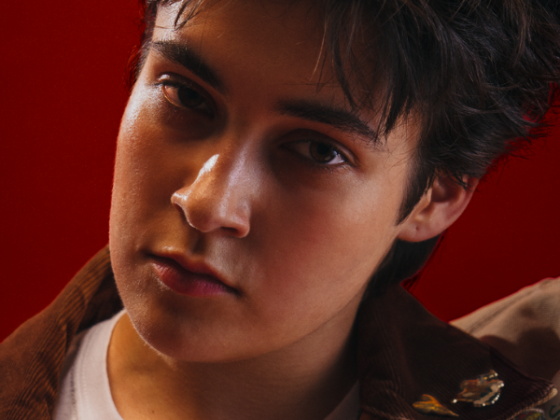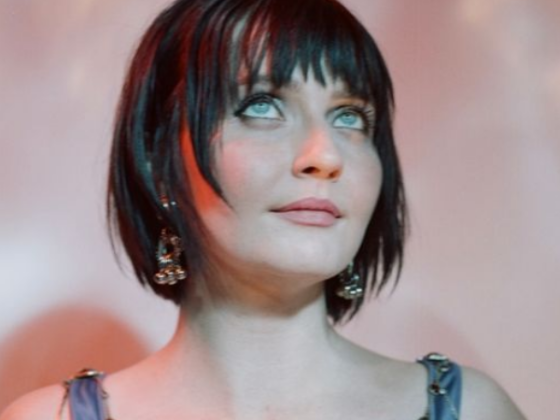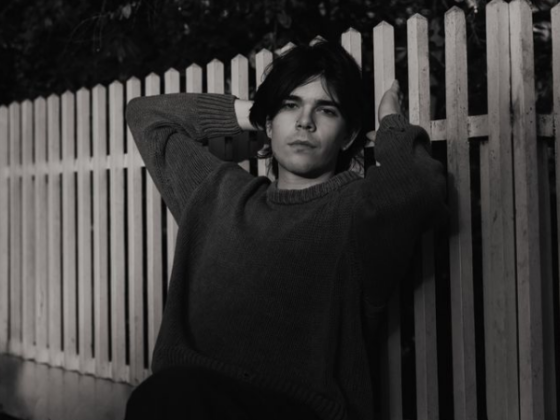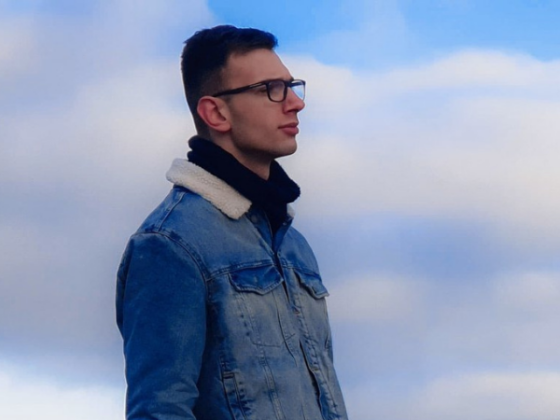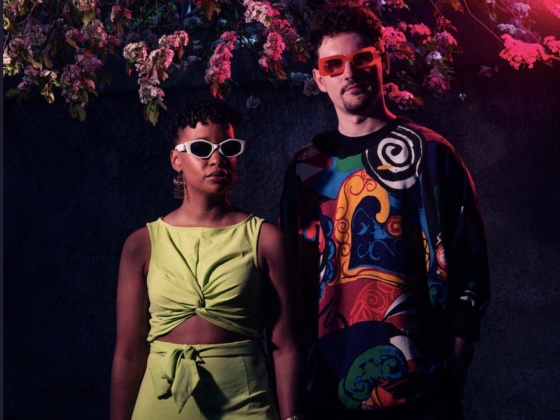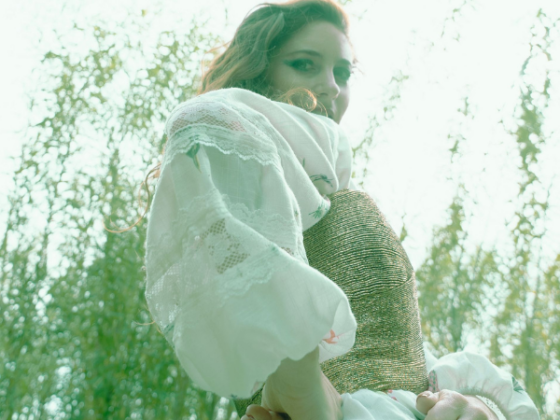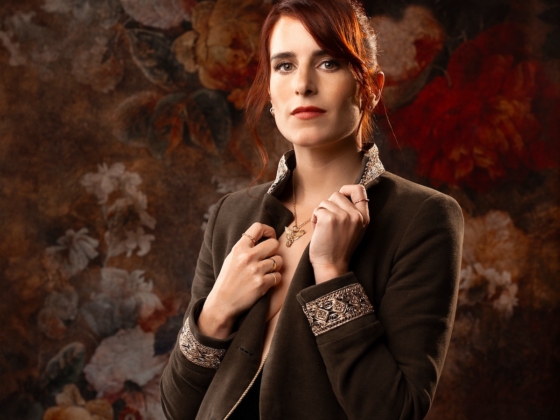The Seattle-based electro-visionary US3R is back with “DOPAM1NE,” a bold new single and the title track from his latest album. It sounds like a digital scream into the void or perhaps more of a heartbeat through the haze. With his genre-eschewing sound and emotionally driven lyrics, US3R has forged a lane somewhere between synth-soaked joy and existential commentary. DOPAM1NE requires that you feel, think, and wonder.
In an exclusive interview with US3R, US3R unearths the chaotic influences behind the record, his sonic evolution, and how his path to making this surreal journey of an album, from growing up in a family where music was a constant force to making albums in the Seattle apartment he shares with his fiancée, has landed him at this defining moment in his music. The discussion deepens into mental health, societal overstimulation, and the quest for meaning in a world that is wired never to stop scrolling.
Read below for an unfiltered peek inside the mind of an artist who transmogrifies anxiety into art and discovers beauty in the noise.
“DOPAM1NE” feels like an emotional rollercoaster wrapped in synths and beats. What inspired the concept behind the album?
I like the idea of escapism – it helps us find humor and pleasure even when feeling terrible inside. But even still, we are products of our environment, not just the location, but the moment we live in as a society. For example, right now, we’re about 25 years into having the internet, and today we spend what feels like 50% of our brain power connecting with people and consuming ideas through a digital window. Are there psychological effects? Some people call it “brain rot” – but I think it is more than that. We find love, experience hate and division, we consume sex, music, entertainment, etc, all from the same set of devices all day long. And if you drink or smoke, or whatever your vice is, that is just piling onto this insane existence we are living right now. Does any of this actually feel GOOD? I don’t know. It feels like we exist somewhere between pleasure and despair. This album is a collection of those feelings from my point of view.
You’ve always had a genre-bending sound, but this record leans heavily into synthwave and industrial pop. What drew you to those particular sonic elements this time around?
Because my family members are all musicians for a living, I’ve been surrounded by music my whole life. You would be amazed at how many different styles of music I have grown to love and all the different styles I’ve learned to play over the years. If you listen to all the US3R albums I’ve put out, you’ll notice the songs all drifting between sparkly synths, heavy rock guitars, dark synth bass, psychedelic textures, hip hop beats, folky melodies, R&B vocals, etc.. It’s all just a product of how scattered my taste is in music. The new album DOPAM1NE is more focused than some of my other works. It uses some hard-hitting drum sounds like my previous album, RISE OF THE MIDNIGHT SUN, did, while being more like a piece of electrified candy. Sonically, it is stitched together like a bunch of “moments,” so you could get lost while feeling your reflection staring back at you. Overall, this album feels immersive and sort of genreless to me.
The title track, “Dopamine,” explores the paradox of modern pleasure. Can you explain the meaning behind the song and what message you hope listeners take away?
The album and title track definitely share the same theme, but the song is a bit more specific. It was one of the only songs on the album where I really break through the fourth wall and talk to the listener directly about what it feels like to just be inundated with addictive stimuli 24 hours a day. I feel that deep down, we all have this in common: we know how each other feels because this is a shared experience we’re having – “I know you, and you know me.” But despite that reality, it also says, “be strong, you’ll be OK.”
A strong emotional core runs through the album. How do you balance vulnerability with high-energy production?
This probably has more to do with my upbringing. When I was a young child, my mother had been touring with a famous band for years, which brought clout and money at the time. Eventually, she gave up that part of her career to focus on raising me. She was a single mother just trying her best. Over the years, we had times when it was more difficult getting by. We went through all that together, and I learned some hard lessons. But despite it all, she never stopped chasing her dreams. It was scary sometimes, but now I see it all through a different lens and find her resilience very inspiring. That experience shaped me into the person I am now – a musical child who over-indexed on chasing stability, built a strong career, and eventually came home to music again. These experiences formed a lot of empathy within me for people’s struggles, so I get a lot of satisfaction from helping people. But I’m also still fiercely ambitious, creative, and opinionated. So, it isn’t surprising that some people find my music vulnerable and intense.
Seattle has a rich musical legacy. How does the city’s culture and atmosphere influence your creative process?
In 2017, I moved from the San Diego suburbs to downtown Seattle, my first time living in a real city. In Seattle you can experience lots of famous places, amazing music venues, and history – but you also see a lot of wild shit which can feel really chaotic. In school, I was a huge fan of Soundgarden, Alice in Chains, Nirvana, etc.. Seattle is very corporate these days, but the surrounding neighborhood still feels like the music I grew up listening to.
Here’s one example of how this place affected my sound: In 2019, I performed at the Central Saloon, where many famous grunge bands played in the 90s. Just next door is an underground recording studio called Orbit Audio, where Alice In Chains recorded years ago. I recorded my second album, INFLUENCE, there. So, when I first wrote INFLUENCE, I was chasing after a sort of “electronic grunge” sound – buzzing heavy synths that mimic how I played guitar in my rock band days. Seattle immersed me in that history, and it helped me evolve as an artist.
What was the most challenging track to create on "DOPAM1NE," and why?
I’ve gotten to a point in my journey as US3R, where I’m mostly focused on nailing exactly the vibe and taste I’m going for – and sometimes that can be not easy. For example, the opening track sounds like 8-bit video games, it gets super grungy, swirls, and is layered with vocals. The difficulty was getting it sonically similar enough to the other songs to feel like they belonged together. Shifts in palette can make or break an album, IMO. As I worked on this album all year, I listened to the songs that I recorded, and sometimes I would decide that it just wasn’t the right vibe, and then rewrite it completely. Being able to listen to your own work objectively after all that time is hard, but I have tried to permit myself to start over if the mood or vibe wasn’t right. Even if I already “like” the song as is, in the end, it makes for a much more cohesive album end-to-end. But it is hard. On some past projects, I have put too much pressure on myself to hit arbitrary deadlines, and in the end, the concepts didn’t always feel fully baked. This time around, I released an album that felt exactly how I wanted it to feel – while still having some risky moments in there (like Perfect Day) because I felt that it could turn off some listeners… but in the end I decided to leave those moments in there because they do reflect who I am as a person. That is what I sound like. This is who I am.
The production is vivid, from shimmering synths to haunting vocals. Did you produce the album yourself, or did you collaborate with other producers or musicians?
Yes. I did all of it by myself – writing, recording, production, mixing, all in my apartment in downtown Seattle. I have been making music for a long time now, basically since I was about 10 years old. After producing these last five albums as US3R, I have finally grown enough to find my “sound” as an artist. It hovers somewhere between traditional song arrangements and “moments” that are just pure textures and ear candy, and I absolutely adore unexpected chord changes and unique harmonies. Engineering-wise, I have collaborated with professionals on some of my past projects, and I learned that the things that excite me as an artist are not necessarily following the rules of good engineering per se. But I have learned that when I can strike the right balance between moods and feelings with a broad, eclectic palette of sounds, then the listener can really be immersed in a feeling that is shapeless and ethereal while still giving them a bit of stank-face when a heavy groove hits. :)
How does "DOPAM1NE" differ from your previous projects, both sonically and thematically?
I have 5 albums: 1985, Influence, Dreams and Nightmares, Rise of the Midnight Sun, and "DOPAM1NE." 1985 was my first legit album with many rough edges, but it was about my childhood and felt familiar. Influence – an album about life through the lens of social media- was super polished-sounding because it was recorded in a fancy studio and mixed by a well-known mixing engineer. Dreams and Nightmares was very raw-sounding and autobiographical because it was fully self-recorded during the pandemic in quarantine in Seattle, and was a major emotional rollercoaster of an album for me. Rise of the Midnight Sun was like the morning after – it was sober, reflective, and felt like I was growing up.
DOPAM1NE is less self-reflective than Rise and focuses more externally than internally. It’s a commentary on society and the things we’re addicted to. It sounds sparkly, acidic, heavy, and grooving. And it spills into these totally unstructured moments of chaotic, wandering sounds while also carrying a pulse throughout. I really do believe that DOPAM1NE is the closest I’ve ever come to making the music I’ve always wanted to make.
Mental health and the search for meaning seem like undercurrents throughout the album. How do these themes play into your identity as an artist?
When I think of all the things we have to juggle in our lives: the exploding cost of living, the inundation of media into our eyes and ears 24/7, the feeling of never being good enough in this runaway world of ours – really, how can anyone not be in a mental health crisis? These things aren’t just superficial; they cross into actual survival territory for many people. I feel a lot of empathy for people who feel cosmically lost amidst this chaos. But also, for those who can find joy, identity, and a voice despite all of it, I find their personal strength beautiful and inspiring. I greatly reflect on these things, and my music sounds like that inner dialogue.
If "DOPAM1NE" were a movie, what kind of visuals or storyline would it have?
This French movie is called “Enter the Void” by Gaspar Noé. His style is super unique, beautiful, sometimes extremely dark, and strongly opinionated, which are characteristics that I hope people will see in my music someday. The film takes place in Tokyo, Japan, and captures the chaotic overstimulation of that city. The opening credits are a montage of hard techno music with this beautiful, bold, colorful, flashing typography of the cast and crew – it’s just like *BOOM BOOM BOOM FLASH FLASH FLASH*. It is insane to look at, but it is stunning and beautiful. The main character is killed in the movie's first half, and his spirit hovers around the city. For the rest of the film, the audience watches the story from his spirit’s POV overhead as the butterfly effect of his death impacts all the people he left behind. That movie to me feels like DOPAM1NE. On the one hand, it is fizzing, energetic, and satisfying, but on the other hand, it is incredibly emotional, intense, and cautionary.
Connect with US3R: Instagram

